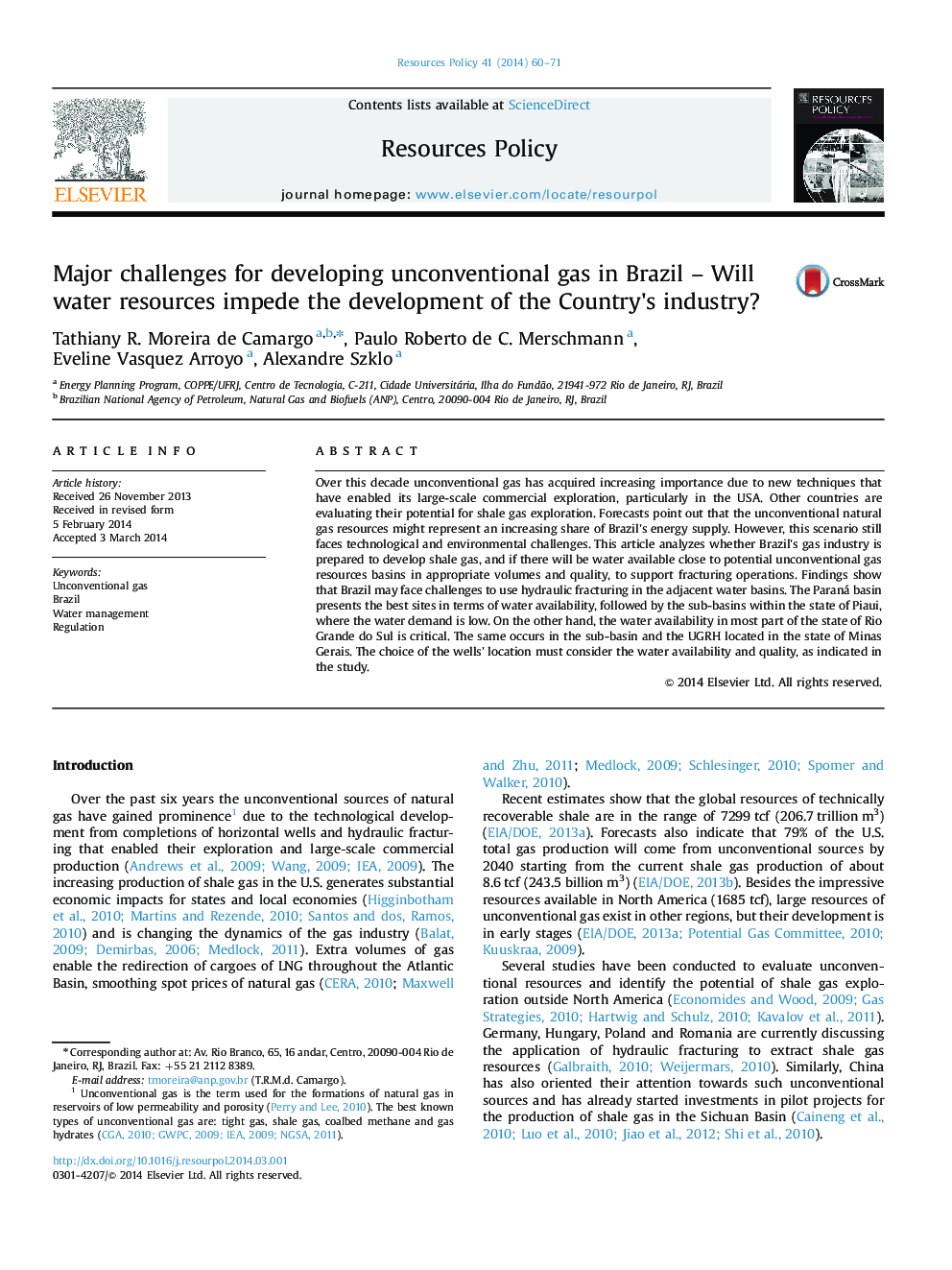| Article ID | Journal | Published Year | Pages | File Type |
|---|---|---|---|---|
| 7387880 | Resources Policy | 2014 | 12 Pages |
Abstract
Over this decade unconventional gas has acquired increasing importance due to new techniques that have enabled its large-scale commercial exploration, particularly in the USA. Other countries are evaluating their potential for shale gas exploration. Forecasts point out that the unconventional natural gas resources might represent an increasing share of Brazil׳s energy supply. However, this scenario still faces technological and environmental challenges. This article analyzes whether Brazil׳s gas industry is prepared to develop shale gas, and if there will be water available close to potential unconventional gas resources basins in appropriate volumes and quality, to support fracturing operations. Findings show that Brazil may face challenges to use hydraulic fracturing in the adjacent water basins. The Paraná basin presents the best sites in terms of water availability, followed by the sub-basins within the state of Piaui, where the water demand is low. On the other hand, the water availability in most part of the state of Rio Grande do Sul is critical. The same occurs in the sub-basin and the UGRH located in the state of Minas Gerais. The choice of the wells׳ location must consider the water availability and quality, as indicated in the study.
Related Topics
Physical Sciences and Engineering
Earth and Planetary Sciences
Economic Geology
Authors
Tathiany R. Moreira de Camargo, Paulo Roberto de C. Merschmann, Eveline Vasquez Arroyo, Alexandre Szklo,
